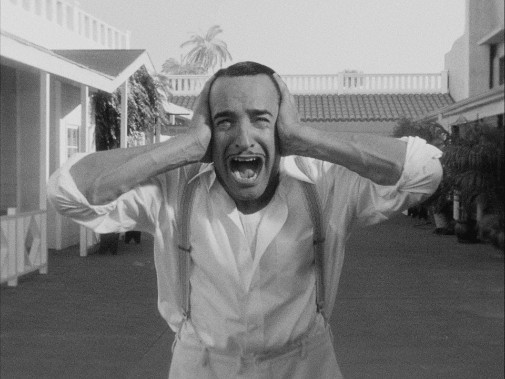
For Oscar obsessives, it's no news that to win big at the Academy Awards can be a curse rather than a blessing. The reigning champions are more discussed and overtly scrutinized than the defeated, their triumph like sweet nectar, attracting the bees of discontentment, resentment, and retroactive bashing. The tides of time can also make an atypical choice seem like a perfunctory one. Notice how some of our strangest Oscar champions of recent vintage have gained the fame of being boring winners when they're anything but. You might not like The Shape of Water, for instance, but a love story between a mute woman and a fish-man is not your run of the mill Best Picture winner.
The same can be said about The Artist, a romantic tale with comedic overtones that, in 2012, became the first silent film to win the Oscars' top honor since 1928…
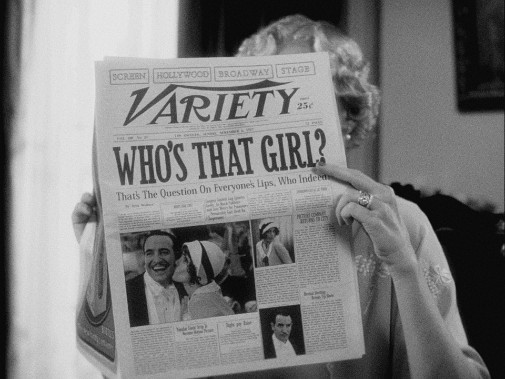
While it's true that Michel Hazanavicius' most famous work is slight, whimsical and deeply inconsequential, those aspects don't have to be necessarily seen as faults. First and foremost, this trifle of a picture is a technical achievement of the highest order, resurrecting the aesthetics of late 20s silent cinema with awe-inspiring precision. From the flashiest costumes to the minutia of blocking and composition, the use of music and the editing patterns of scenes, The Artist is pastiche done with near-archeological exactitude, taking Hazanavicius' customary exercises in cinematic homage to another level. You can find a similar ethos in his OSS 117 series, which tries to bring back the pleasures of 60s action Eurotrash to contemporary audiences.
Those are deeply indulgent movies that make no qualms about their purpose – to entertain and rhapsodize about the wonders of past cinema. Don't let yourself be fooled by the Oscar gold and Cannes prestige, The Artist follows the same filmmaking logic, though it does so with more brio. It's a movie with a shameless need to please, prioritizing cuteness above any sort of complex psychology. When the picture introduces darker elements to its plot, it's because doing so is part of its love letter to old movies and not because the team behind The Artist is intending on dissecting their protagonist's troubled soul. You can easily take this as damning with faint praise, but it isn't so. Bless The Artist and its joy.
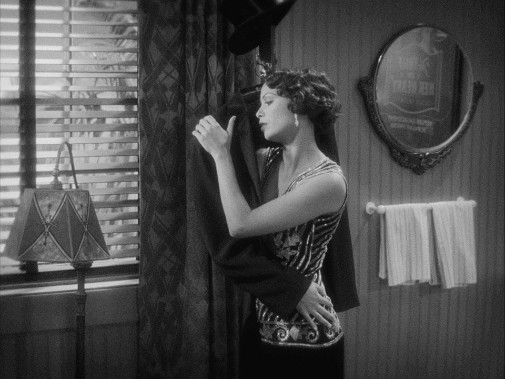
Before continuing on this path, it's a good idea to summarize the plot. The Artist tells the story of George Valentin, a John Gilbert-esque movie star, and up and comer Peppy Miller, a wannabe starlet whose name is a good descriptor for her general attitude. As the advent of sound shakes the movie business to its core, Valentin sees himself losing fame and money, while Miller ascends to the upper echelons of stardom, their fates united in a dance of charming romance and self-destruction. In the end, it all goes well, though there are some brushes with death before we reach that conclusion. It's A Star is Born meets Singin' in the Rain, two of Hollywood's favorite stories about itself married in the form of silent melodrama.
It's not any sort of grand narrative opus with lots to say about the neurosis of creative types or Hollywood history, I admit. Neither is it a Guy Maddin-style exploration of the plastic possibilities of old media. Instead, The Artist is simple entertainment, made for and by cinephiles, that doesn't need or want to signal its importance. In parts, there's such a simplicity to the whole thing that you can't help but smile at the screen. Like when Uggie, the most adorable Jack Russel Terrier you ever did see, takes center stage. Moreover, the actors breathing life into Hazanavicius' movie-mad reveries are admirably adept at exploring complicated acting registers that have long gone out of style.
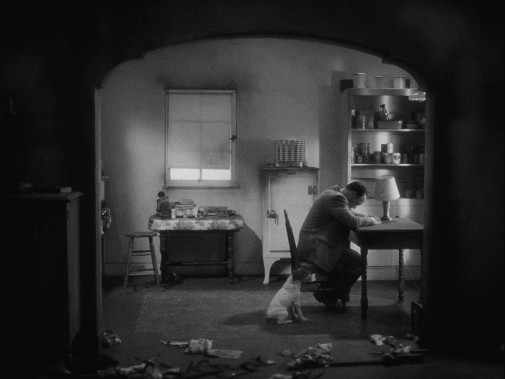
As Peppy, Berénice Bejo can sometimes err on the side of broadness, but Jean Dujardin is pitch-perfect as Valentin. He even finds his way of portraying the charming matinée idol of the beginning and the suicidal wreck of the movie's climax with tonal coherence and not one false note. The greatest sin of the whole thing is its loss of momentum as it goes along and comedy gives way to sentimentality. Its general playfulness tends to obfuscate such faults but they are there. However, that critique can be equally aimed at many a great popular success of silent-era Hollywood making this fault more of a feature all things considered.
To describe The Artist as lazy Oscar bait is disingenuous, at best, and vitriolic, at worst. After all, how many romantic comedies have won Best Picture in the last few decades? How many silent black and white movies? If not for the Weinstein's involvement and the effective campaign that got the project its controversial laurels, it's difficult to imagine it making much of a dent on the awards season. Maybe if the movie had some weighty subject matter or portentous real-life story attached, it wouldn't be so easily dismissed. In any case, when it's all said and done, The Artist will forever shine bright as one of the strangest Oscar champions of our time.
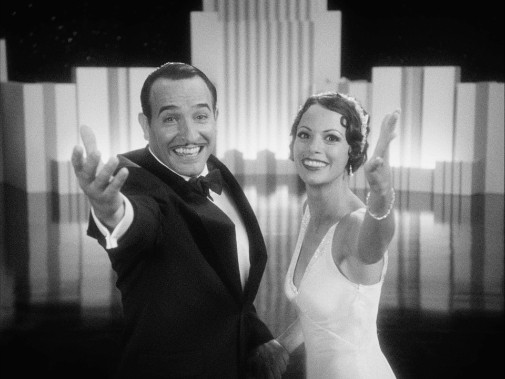
The Artist is new to streaming on Netflix. It's also available on The Roku Channel and Vudu Free. You can also rent it on Redbox, Amazon, Youtube, and others.